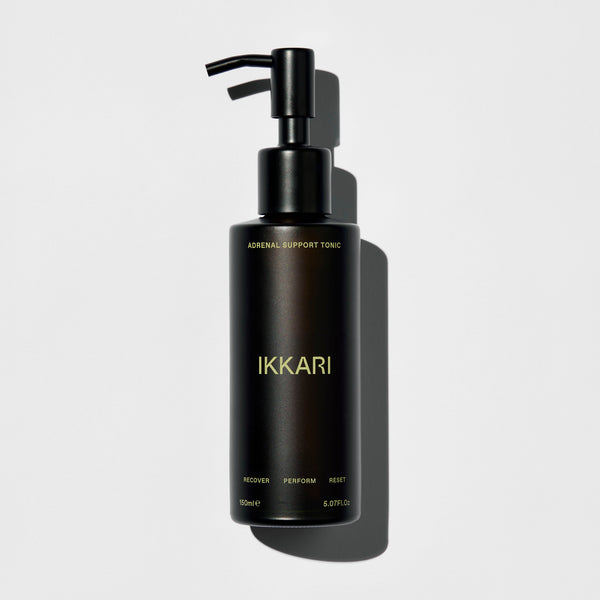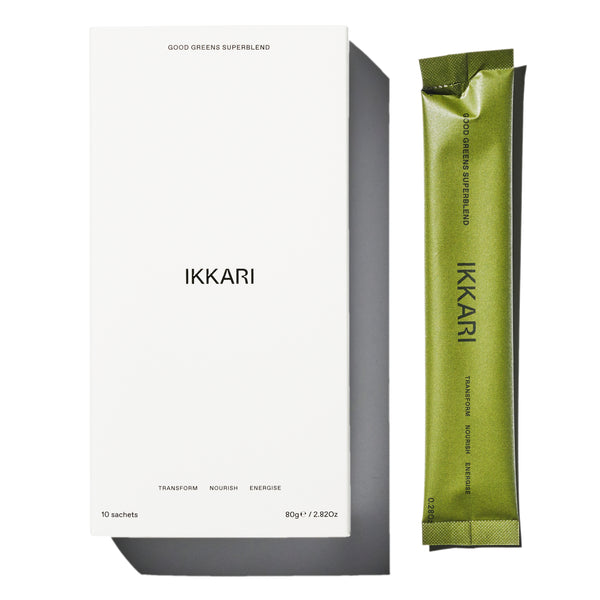In conversation with IKKARI expert, Nutritionist and Dietetic Clinician, Liv Crumpton
Australian Traditional Medicine Society Accredited Nutritionist, with a Bachelor of Science in Nutrition and Dietetics, Liv offers professional nutrition counselling through her business, Liv Nutritious. Currently completing a Master of Women’s Health Medicine, Liv’s mission is to help others achieve an ongoing healthy and sustainable relationship with food, believing it is the premise of a fulfilling and well-rounded lifestyle.
When you study for a science degree, a mind can become very ‘black and white’, science-backed, and data-focused. My approach to health for myself and my patients has undoubtedly evolved, taking symptoms, feelings, mental health and lifestyle capacity into creating an individualised treatment plan. Creating a motivating environment that highlights what has been achieved rather than what has not is also important. ‘Health’ is not perfect; life has bumps, and so too will the way we eat, train and sleep. It’s essential to understand the flow of life is not ‘interruptive’, but rather the journey is what grounds us and creates strength and resilience.
My theme, ‘zoom out’, applies to all aspects of health. Living too focused in one area is a band-aid approach and will not address the real issue. Your whole health is more than just your skin, your gut, or your energy/lack thereof. It is the harmonious connection of your inner and outer that brings homeostasis, and with a bit of patience and focus, the ‘whole’ you will benefit.
In general, are there certain foods and choices women should be including when making nutritional choices?
Please don’t overthink it; listen to your body and what she tells you. Disregarding her communication will lead to the wrong choices. When it comes to the menstrual cycle, I could talk about this for hours, which is precisely why Laura and I created Body Bloom; accepting and honouring our body takes away judgement, judgement being the underlying factor of food and body image negativity. It’s so important to understand how a menstrual cycle and different life stages change our appetite, metabolism and nutrient requirements. My tip for readers is, if you honour this shift, you are being true to your health; if you are trying to live in your 20-year-old body at age 35 or 30-year-old body at age 45, this is where poor food relationships, body image and weight management can manifest. A diet is not you; nobody knows you better than you.
Again, zoom out. It’s not just you, it’s your partner, too. Hormone health for both sides is fertility health. It’s about extra love and self-care. Think wholefoods, grass-fed and organic, but avoid complete restriction from the foods you love. The fertility journey can be a long one, and your mental health and life enjoyment are key players in hormone health. On the other end of the scale, if you are being too reliant on processed foods, alcohol and caffeine, think back to why this might be; there is always a physical/mental reason for ‘coping’ habits that do not serve us well with frequency or excess, particularly when it comes to fertility.
That you must have time and money to invest in your health - take the time to reflect on how you spend your time and how this affects your headspace. Aside from this, my pet peeves are: fasting = weight loss, calorie counting = weight loss, health = skinny, and the notion that PMS is a normal part of being a woman - persistent PMS is not normal.
One of our favourite tools is mirror image positive self-talk. The premise is ‘talk to yourself like you are talking to a friend’, or someone you admire and hold space in your heart. We can all be so hard on ourselves, seeing and feeling only what we don’t like or comparing ourselves to others rather than seeing our unique and special traits. When we see a best friend, we see all that we admire about them and are likely to compliment them - why do we never do this for ourselves? Who do we look in the mirror and feel frustration or self-doubt? At the end of the day, you are only ever going to be as good as the person you tell yourself you are.
While women have many strengths, putting themselves first never felt possible. However, now with the voice the women's health community holds, this is improving. Taking away the stress of feeling like we have to come first, but rather simply creating space each day, makes this notion feel more attainable. Health is accessible to everyone regardless of finances or time; it doesn’t have to be expensive or take up half a day. My advice is to start with a small commitment to yourself that your heart feels full. Even something as simple as committing to just one coffee and 2 litres of water per day, or an evening stroll rather than sitting on the couch, or a guided breathwork meditation once the kids have gone to bed. Once you have nailed one achievement, then add another - as the saying goes, ‘little steps, big changes’.





